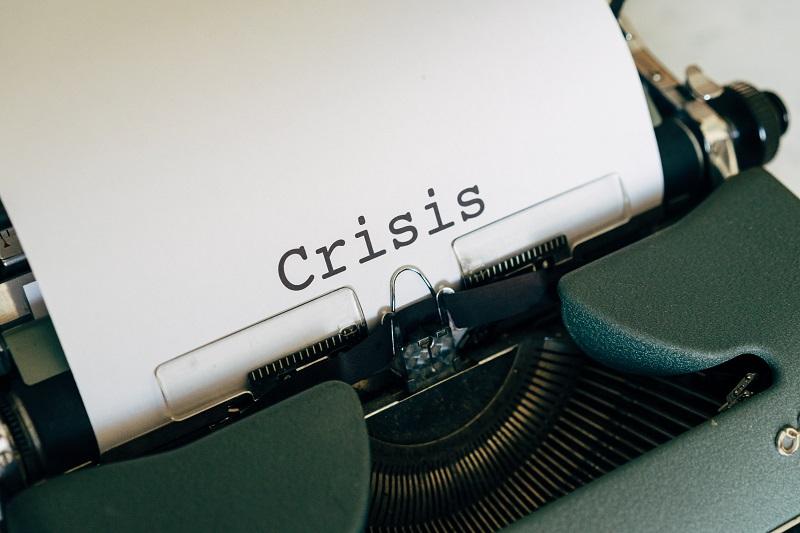Investor Strategies for a Debt Ceiling Crisis
Aug 09, 2023 By Rick Novak
As the United States stares down the barrel of a potential debt ceiling crisis, investors across the globe are holding their breath. In the U.S., January 19 had a debt ceiling, and the infamous "X-date" has quite some noise around it. While the President scrambled to hash out a compromise, their failure could result in a global economic catastrophe. Investors, understandably, are feeling the heat.
But let's take a step back for a moment. The U.S. has raised its debt ceiling 78 times over the past six decades. Twenty of those instances happened in the past two decades alone. Therefore, keeping a historical perspective and understanding that these predicaments have been navigated before is essential.
Lesson from 2011 Debt Ceiling Crisis: Avoiding Panic Selling

The 2011 debt ceiling crisis made us faces the same circumstances. When a House led by Republicans declined any increase in the ceiling unless the Democrats agreed to cut federal spending? That standoff ended just 72 hours before the dreaded X-date. A splurge was seen in S&P 500 in one day, merely a bump in the road. The years that followed saw substantial gains in the market.
This history lesson isn't intended to predict the outcome of the current situation but to illustrate that reactions often come back. Panic selling can lead to significant missed opportunities. The long-term view is crucial during periods of uncertainty.
The Risks of Margin Trading
With the market volatility in 2023, it may not be the most suitable year to engage in margin trading. It is taking extra finances to invest in your stock by lending it from a broker. It can be lucrative in a bull market, but with looming short-term volatility, the tables can turn fast.
If a stock declines by 50%, you will lose a lot more than the base amount. Plus, the marginal loan interest and associated fees might outweigh the benefits in a bear market accompanied by a potentially catastrophic default.
Cash: Your Potential Savior
It is advisable to have some money on the side saved, probably in your brokerage account. As we approach the potential of losing it more in the coming years might lower the value of your assets for now. If so, having cash on hand could be instrumental in snapping up those shares at bargain prices. It would be more beneficial if the company's fundamentals were strong.
Explore High-Risk Investment Options

CNN previously reported that investors should avoid corporate junk or emerging market bonds during a potential default and learn how to prepare for the debt ceiling crisis. These high-risk debt instruments would likely be the first to feel the squeeze. If the U.S. defaults, the country's borrowing capacity would be compromised, causing these high-risk debt instruments to come under pressure and prepare for debt ceiling crisis
Adjusting Your 401(k)
It's also worth reassessing your equity-to-bond 401(k) allocation. With stocks, a riskier investment than bonds, likely to become more volatile as the X-date approaches, adjusting your 401(k) allocations may be wise.
Beware of Over-Investment
When the market’s plunge, the temptation to buy the dip can be overwhelming. Yet, it's crucial to avoid over-investing, especially with a potential recession on the horizon. It would help to consider the many other economic pressures before seizing a market sale.
Preparing for Social Security Delays
Finally, it's essential to prepare for possible Social Security payment delays. Any delay could be devastating for the 66 million Americans relying on these benefits. Though there is a possibility the Treasury may continue making on-time payments due to the entitlement program's trust fund, it's better to prepare for potential disruption.
FAQs
Is buying stocks during a recession?
When the economy takes a downturn and recession creeps in, it can be pretty unnerving for investors. As the economy slows, stock prices often plummet, and job security concerns become widespread. But believe it or not, a recession can provide some of the most lucrative investment opportunities. This season, high-quality stocks can often be picked up at discounted prices, setting the stage for impressive gains when the economy eventually rebounds.
How can you protect investments if the U.S. defaults on its debt?
As an investor, playing it safe in case of a U.S. debt default is paramount. This means focusing on high-quality investments and steering clear of riskier ventures like corporate junk bonds or emerging market bonds. These high-risk instruments will likely be the most affected if the U.S. defaults on debt.
Should I invest in gold during a recession?
Investing in gold can be seen as a safer haven during recessions, often outperforming other assets. However, gold may not be your best bet if you aim to maximize your earnings and take an aggressive stance with your investment portfolio. While it can stabilize during economic downturns, gold typically doesn't deliver as many returns over the long run as higher-risk assets.








